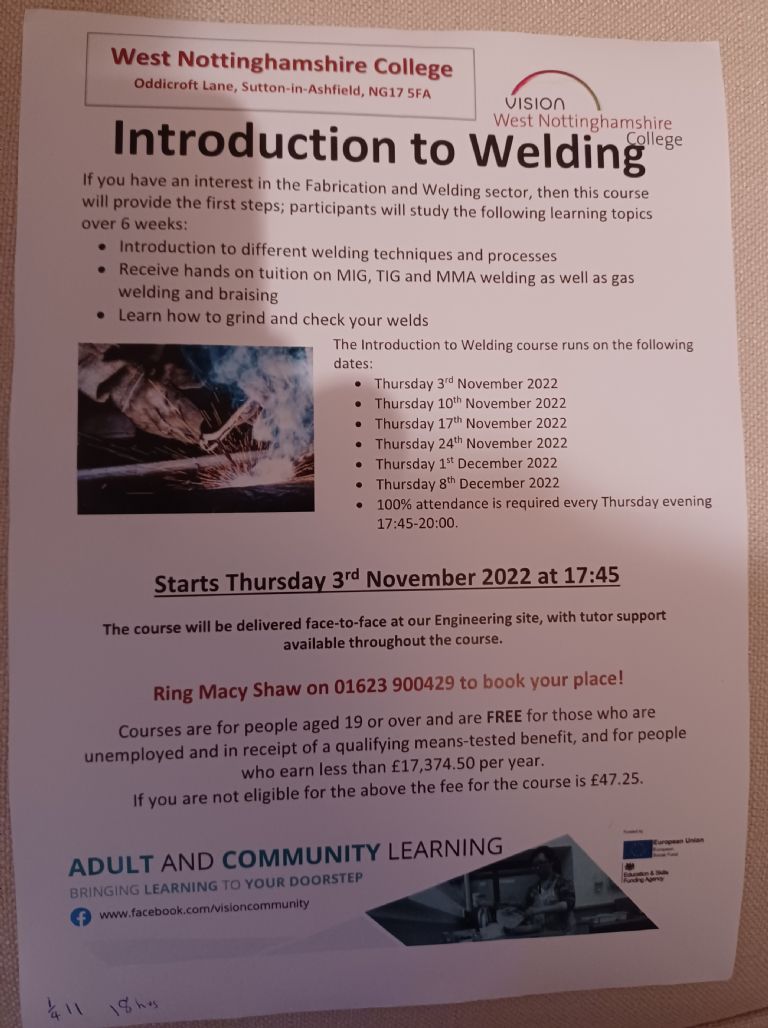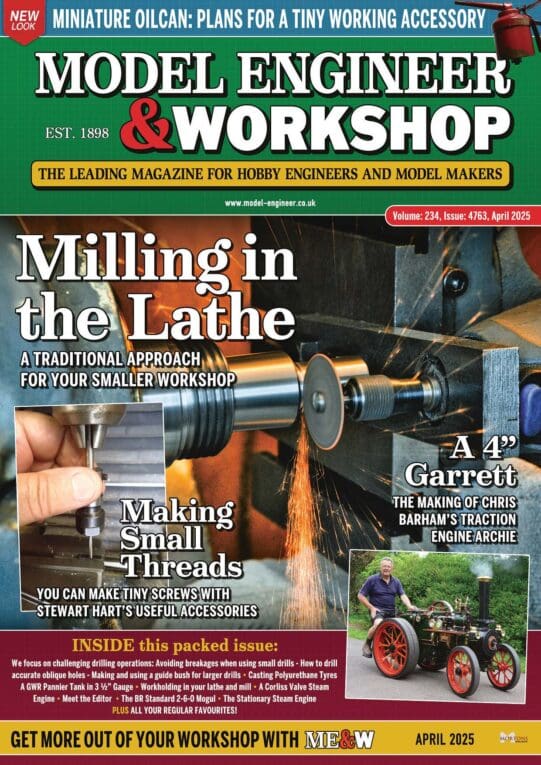Welding course
Welding course
- This topic has 18 replies, 15 voices, and was last updated 24 October 2022 at 11:57 by
 Michael Gilligan.
Michael Gilligan.
Viewing 19 posts - 1 through 19 (of 19 total)
Viewing 19 posts - 1 through 19 (of 19 total)
- Please log in to reply to this topic. Registering is free and easy using the links on the menu at the top of this page.
Latest Replies
Viewing 25 topics - 1 through 25 (of 25 total)
-
- Topic
- Voices
- Last Post
Viewing 25 topics - 1 through 25 (of 25 total)
Latest Issue
Newsletter Sign-up
Latest Replies
- Supply company catalogues
- Damp proofing concrete floors
- Machinery Handbook
- Chester DB10LB Lathe – Not starting
- Measuring increments on boring head
- Elliott Omnimill Quill Clamp
- Problem getting the right parameters on a VFD
- Flattening brass plates
- How to wire up 3 phase motor and 3 phase converter?
- Morse Key





